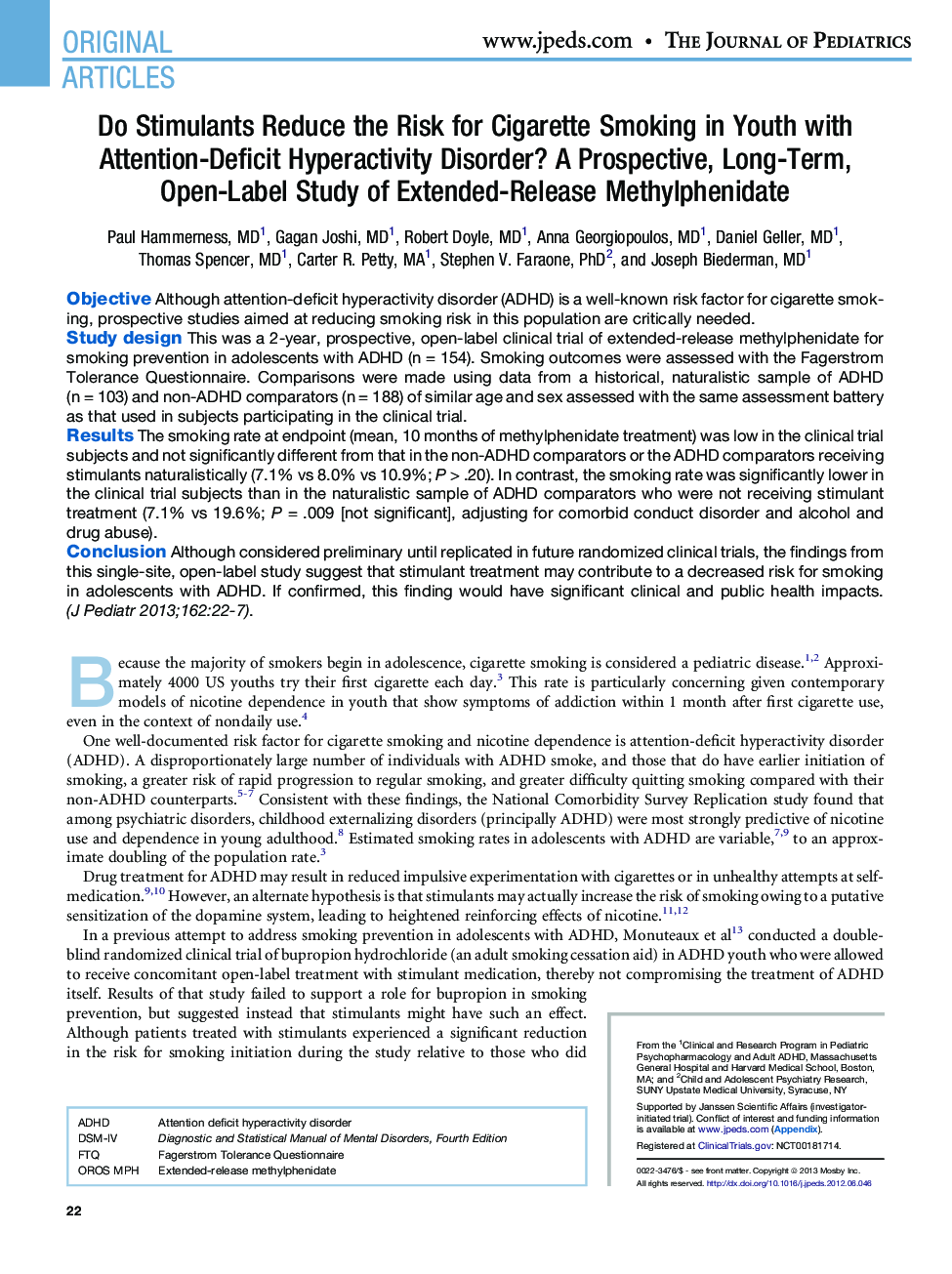| Article ID | Journal | Published Year | Pages | File Type |
|---|---|---|---|---|
| 6224304 | The Journal of Pediatrics | 2013 | 8 Pages |
ObjectiveAlthough attention-deficit hyperactivity disorder (ADHD) is a well-known risk factor for cigarette smoking, prospective studies aimed at reducing smoking risk in this population are critically needed.Study designThis was a 2-year, prospective, open-label clinical trial of extended-release methylphenidate for smoking prevention in adolescents with ADHD (n = 154). Smoking outcomes were assessed with the Fagerstrom Tolerance Questionnaire. Comparisons were made using data from a historical, naturalistic sample of ADHD (n = 103) and non-ADHD comparators (n = 188) of similar age and sex assessed with the same assessment battery as that used in subjects participating in the clinical trial.ResultsThe smoking rate at endpoint (mean, 10 months of methylphenidate treatment) was low in the clinical trial subjects and not significantly different from that in the non-ADHD comparators or the ADHD comparators receiving stimulants naturalistically (7.1% vs 8.0% vs 10.9%; P > .20). In contrast, the smoking rate was significantly lower in the clinical trial subjects than in the naturalistic sample of ADHD comparators who were not receiving stimulant treatment (7.1% vs 19.6%; P = .009 [not significant], adjusting for comorbid conduct disorder and alcohol and drug abuse).ConclusionAlthough considered preliminary until replicated in future randomized clinical trials, the findings from this single-site, open-label study suggest that stimulant treatment may contribute to a decreased risk for smoking in adolescents with ADHD. If confirmed, this finding would have significant clinical and public health impacts.
